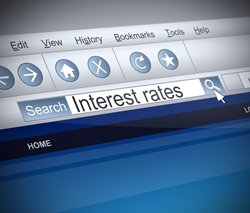5 Mortgage Mistakes You Don't Have to Make
 Everyone makes mistakes from time to time; after all, to err is human. While they sometimes come out of nowhere, many mistakes are easily avoided if a person is willing to put in a little extra effort or pay a little more attention. This post will highlight five simple errors commonly committed by people before or after acquiring a mortgage. With a good read and a bit of luck, you can make sure that your finances are in the best shape possible for years to come!
Everyone makes mistakes from time to time; after all, to err is human. While they sometimes come out of nowhere, many mistakes are easily avoided if a person is willing to put in a little extra effort or pay a little more attention. This post will highlight five simple errors commonly committed by people before or after acquiring a mortgage. With a good read and a bit of luck, you can make sure that your finances are in the best shape possible for years to come!
Always Keep Your Credit Score in Mind
This one is obvious, but you should never push your credit score to the back burner. Missing even a single credit card payment can greatly impact your ability to qualify for the best rates on a mortgage for years to come. Even something as simple as opening or closing a credit card account around the time of your mortgage application could have negative effects, so avoid doing anything with credit implications until the ink is dry on that loan!
Don't Assume that Bigger is Better
When shopping for a mortgage, you might assume that the safest and easiest thing to do is apply at a big-name bank. However, local banks can often provide similar or better deals while also having the flexibility to meet your particular needs. If you have unusual financial circumstances, this flexibility may be the difference between delaying your home search and closing the sale!
Act Fast
Because they've been high for a time, but are lowering, you might think that there is no rush on locking in a particular loan at the offered rate. However, it is important to remember that mortgage rates change daily. When applied to a sum as large as a home's purchase price, even a tiny fraction of an increase can equal major money over time. Therefore, you should always be sure to act fast on a good rate before it's too late!
Never Stop Watching Interest Rates
Now that you've bought your home, it's easy to make the mortgage payments and never think about the rate again. However, this is not a wise move. Major changes in the market could result in larger drops in interest rates. These situations provide an excellent opportunity for you to refinance! Although this process is likely to involve several fees, a significant drop in interest accumulation will almost certainly pay for them and more over the remainder of the mortgage.
Pay Extra Whenever Possible
Similar to the last issue, it's easy to just always make the minimum payment so that you'll have more money in your bank account. However, additional payments toward principal can shave YEARS off a traditional mortgage! Of course, many people make the minimum payment out of necessity rather than choice, but if a chunk of money ever does become available you should think carefully about how to best apply it. Rather than splurge on an expensive purchase now, put that money toward the mortgage principal. There is a good chance that the money will come back to you as savings on interest. Similarly, making biweekly payments rather than monthly ones can reduce your accumulated interest by increasing payment frequency.
- Cheryl Bourland's blog
- Login or register to post comments
 Google+
Google+


 Information Deemed Reliable but Not Guaranteed. CENTURY 21 H.S.V. Realty is licensed in the state of Arkansas. CENTURY 21 and the CENTURY 21 Logo are registered service marks owned by Century 21 Real Estate LLC. H.S.V. Realty, Inc. fully supports the principles of the Fair Housing Act and the Equal Opportunity Act. Each franchise is independently owned and operated. Any services or products provided by independently owned and operated franchisees are not provided by, affiliated with or related to Century 21 Real Estate LLC nor any of its affiliated companies.
Information Deemed Reliable but Not Guaranteed. CENTURY 21 H.S.V. Realty is licensed in the state of Arkansas. CENTURY 21 and the CENTURY 21 Logo are registered service marks owned by Century 21 Real Estate LLC. H.S.V. Realty, Inc. fully supports the principles of the Fair Housing Act and the Equal Opportunity Act. Each franchise is independently owned and operated. Any services or products provided by independently owned and operated franchisees are not provided by, affiliated with or related to Century 21 Real Estate LLC nor any of its affiliated companies.